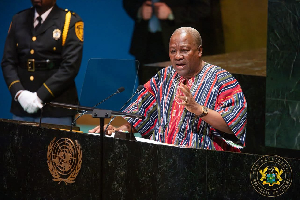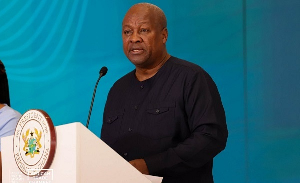Environmental Protection Agency (EPA), in collaboration with the Ministry of Environment, Science, Technology and Innovation, has launched the motor emission programme.
The project is aimed at reducing vehicle emissions and its related diseases in the country and to establish air quality standards to safeguard the health of Ghanaians.
The programme, which was formally launched in Accra on the theme: “Clean Air for Healthy Life,” will ensure proper regulation of emissions in the country and also make sure that all motor vehicles and motorised equipment in the country and those imported are less pollutant or fall within acceptable emission standards.
Motor emissions, particularly those from vehicles, which come in the form of conventional pollutants and greenhouse gases, are known to be one of the major contributors to air pollution in Ghana and can have adverse health impacts on the lower and upper respiratory tract, cardiopulmonary diseases, environmental damage and cause global warming.
Speaking at the launch, Minister of Environment, Science, Technology and Innovation, Mr. Mahama Ayariga, mentioned the transport sector as one of the sectors that heavily contributes to the effects of climate change, the single biggest challenge facing the world today.
According to him, records indicate that many of the substances referred to as air pollutants, produce human health effects at high levels of exposure, stressing that that is why his outfit in collaboration with EPA and other partners, are making efforts to control and reduce such emission pollution in the country.
He said government was introducing the emission testing of vehicles to form part of the enforcement processes that will go beyond the existing inspection regime, which largely focuses on the examination of the physical conditions of vehicles and urged all to support the course to stop emissions of vehicles, polluting the environment.
He further explained that the sub-component on vehicular emissions forms part of the evolving capacity building programme of the EPA to ensure sound management of the environment and in part to respond to Ghana's commitment under the United Nations Framework Convention on Climate Change.
According to him, areas like aviation and marine sectors would be tackled in the near future in ensuring a significant reduction in emissions from those sectors as well.
“It will affect all of us so we expect the public support. We expect some may protest, some will appeal against it but if we all want to do something about it then we should support the EPA to enforce the standards,” he said.
For his part, Executive Director of EPA, Mr. Daniel Amlalo, said the month-long nation-wide trial testing programme would be conducted by the Apex Pollution Control Company Limited, which acquired the test equipment with financial support from uniBank Ghana Limited, as well as other stakeholders like the Motor Traffic and Transport Department of the Ghana Police Service (MTTU), and the Driver Vehicle Licensing Authority (DVLA).
The testing of vehicle for their emission levels would be done free of charge during the trial testing period which started just after the launching but subsequently fees would be charged as part of road worthy certification.
The fees chargeable would be captured under the Fees and Charges Amendment Regulation of the EPA. The trial test would serve as a fore-runner for the soon to be introduced mandatory motor emission tests.
Mr. Amlalo explained that as part of the Road Worthy Certificate, vehicles would be tested for their emission levels before they would be issued with Road Worthy Certificate.
Board Chairman of EPA, Professor Vincent Nartey, urged the public and stakeholders to work hard to reduce vehicle emissions that continue to reduce the quality of life of people in the country.
The Transport and the Road and Highway Ministries, Ghana National Petroleum Corporation and other stakeholders all pledged their commitment towards helping reduce vehicular emissions in Ghana.
Regional News of Tuesday, 18 August 2015
Source: Today Newspaper
Motor emission programme launched
Entertainment











